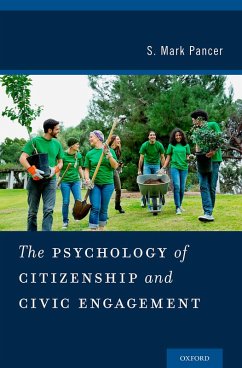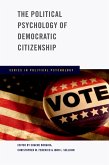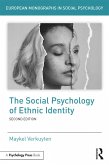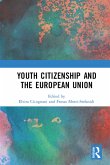Citizens' sense of responsibility to their community and to their nation is becoming a topic of growing concern. Recent research indicates that citizens of the United States and many other nations have become increasingly disconnected from their fellow community members, and when this connection is lost, individuals begin to suffer. They experience poorer health, achieve lower academic and employment success, and are at risk for the development of a host of social problems. On a broader level, states and countries whose citizens feel detached from their communities show higher levels of crime, a greater incidence of disease, and even higher mortality rates. In
The Psychology of Citizenship and Civic Engagement, S. Mark Pancer explores the development of civic engagement, the factors that influence its development, and the impacts of civic involvement on the individual, the community, and society. Pancer examines civic engagement over the lifespan and how the effects of early experiences and influences exerted by peers, families, and religious organizations shape adult involvement. By addressing civic engagement from a systemic as well as individual perspective, this book discusses the role that factors such as government policy, culture, and socioeconomic status play in fostering (or inhibiting) a person's civic connections. Pancer also works toward a solution to increase active citizenship by identifying gaps in research and theory and outlining ways in which scholarly work on civic engagement can inform policy and practice, with the aim to foster individuals sense of responsibility and community connection. By bringing together a large body of research from psychology, political science, sociology, education, and public health, Pancer provides readers with a comprehensive account of what science tells us about civic engagement.
Dieser Download kann aus rechtlichen Gründen nur mit Rechnungsadresse in A, B, BG, CY, CZ, D, DK, EW, E, FIN, F, GR, HR, H, IRL, I, LT, L, LR, M, NL, PL, P, R, S, SLO, SK ausgeliefert werden.









